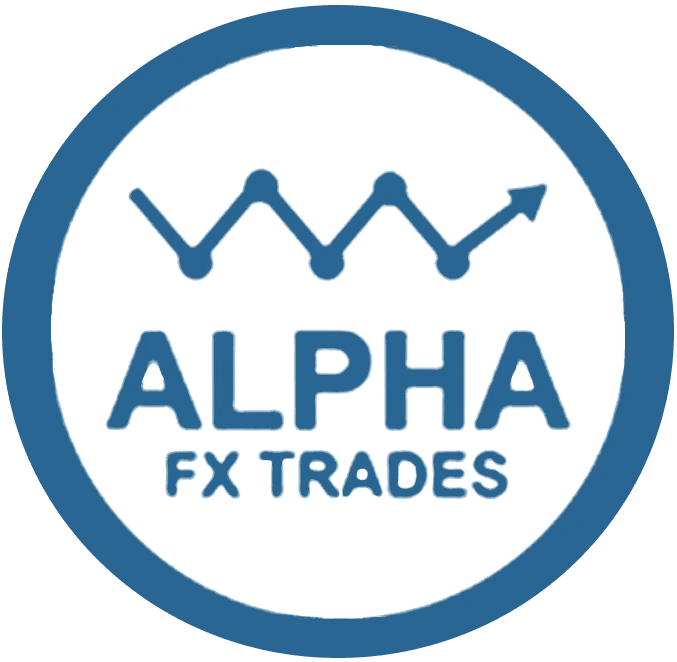Common Misconceptions: Separating Fact from Fiction

When it comes to the forex marketplace, there are plenty of myths floating around. These misconceptions can mislead new traders and even experienced ones. Let’s break down some of these myths and set the record straight.
Myth 1: Forex Trading is Easy Money
Many people believe that forex trading is an easy way to get rich quickly. You might have heard stories of traders making thousands overnight. While it’s true that some traders do make significant profits, it’s far from easy money. Forex trading requires knowledge, skill, and a lot of practice. Jumping in without proper education can lead to significant losses. So, if you’re thinking about diving into the forex marketplace, be prepared to put in the effort.
Myth 2: You Need a Lot of Money to Start Trading
Another common myth is that you need a hefty bank balance to start trading forex. This isn’t true at all. Thanks to modern technology and online trading platforms, you can start trading with as little as $100. Many brokers offer mini and micro accounts, which allow you to trade small amounts. This makes the forex marketplace accessible to almost everyone, regardless of their financial situation. So, don’t let the myth of needing a lot of money keep you from exploring forex trading.
Myth 3: The Forex Marketplace is Rigged
Some people think that the forex marketplace is rigged and only big players can win. This myth likely stems from the complexity of the market and its global nature. However, the forex market is one of the most transparent and fair markets out there. While big institutions do have more resources, individual traders can still succeed with the right strategies and tools. It’s all about learning how the market works and using that knowledge to your advantage.
Myth 4: You Can Predict the Market with Certainty
Wouldn’t it be great if you could predict market movements with absolute certainty? Unfortunately, this is a myth. The forex market is influenced by countless factors, including economic data, political events, and market sentiment. While you can use analysis to make educated guesses, there’s no way to predict the market with 100% certainty. This is why risk management is crucial. Always be prepared for unexpected market movements and never risk more than you can afford to lose.
Myth 5: You Don’t Need a Strategy
Some new traders believe they can just follow their gut and make successful trades. This couldn’t be further from the truth. Successful forex trading requires a well-thought-out strategy. Whether you prefer technical analysis, fundamental analysis, or a combination of both, having a plan is essential. A good strategy helps you make informed decisions and stay disciplined. Without a strategy, you’re basically gambling, and that’s not a sustainable way to trade in the forex marketplace.
Myth 6: Trading Signals Are Always Accurate
Trading signals can be a helpful tool, especially for beginners. However, it’s a myth that they’re always accurate. Even the best trading signals can be wrong sometimes. It’s important to use signals as part of a broader strategy and not rely on them entirely. Make sure to understand the rationale behind the signals and use your own judgment. Remember, no one can guarantee profits in the forex marketplace, so always approach signals with a healthy dose of skepticism.
Myth 7: You Need to Be a Math Genius
Forex trading involves numbers, but you don’t need to be a math genius to succeed. Basic math skills and an understanding of how to read charts are enough. The real key to success is understanding market psychology, developing a strategy, and sticking to it. Many trading platforms also offer tools that simplify the math, making it easier for you to focus on strategy. So, if math isn’t your strong suit, don’t worry—you can still excel in the forex marketplace.
Myth 8: You Can Trade Anytime and Make Money
The forex market is open 24 hours a day, five days a week, but that doesn’t mean you should trade all the time. Market conditions vary throughout the day, and not all times are equally profitable. For instance, the overlap between the London and New York sessions is usually the most volatile and offers the best trading opportunities. It’s important to understand the best times to trade and not just trade randomly. This way, you can make the most of the forex marketplace’s potential.
Myth 9: All Brokers Are the Same
Choosing a broker is one of the most important decisions you’ll make as a trader. However, it’s a myth that all brokers are the same. Brokers can vary widely in terms of fees, services, and reliability. It’s crucial to do your research and choose a reputable broker that fits your needs. Look for brokers that are regulated by financial authorities and have good reviews. This will help ensure a safe and smooth trading experience in the forex marketplace.
Try out AlphaFX's recommended Broker Click Here
Myth 10: Forex Trading is Just Luck
Some people think that success in forex trading is purely a matter of luck. While luck can play a role in the short term, long-term success requires skill and strategy. It’s about making informed decisions based on analysis and experience. Consistent profits come from understanding the market, managing risks, and continuously improving your trading skills. So, don’t rely on luck; instead, focus on learning and developing your expertise in the forex marketplace.
By debunking these common myths, you can approach the forex marketplace with a clearer understanding and realistic expectations. Remember, trading is a journey, and the more you learn, the better prepared you’ll be to navigate the market. So, take your time, keep educating yourself, and stay patient. The forex marketplace offers incredible opportunities for those who are willing to put in the effort and stay disciplined.
Risk Realities: Understanding the True Risks Involved

The Volatility Factor: Buckle Up for a Wild Ride
When you enter the forex marketplace, you step into a world where prices can change rapidly. The forex market is incredibly volatile, meaning exchange rates can fluctuate dramatically in a short time. This volatility can be exciting, but it also means you can lose money just as quickly as you make it. It’s crucial to be prepared for these ups and downs. You wouldn't jump on a roller coaster without strapping in, right? Similarly, in the forex marketplace, always be ready for the ride of your life.
Leverage: A Double-Edged Sword
Leverage is one of the features that make the forex marketplace attractive. It allows you to control a large position with a relatively small amount of money. Sounds great, doesn’t it? But here’s the catch: leverage can amplify both your gains and your losses. Imagine you have a megaphone that not only amplifies your voice but also any background noise. In the forex marketplace, leverage can turn minor market movements into significant profits or devastating losses. Using high leverage without a solid strategy is like walking a tightrope without a safety net. Always use leverage wisely and understand the risks involved.
Emotional Trading: Keep Your Cool
Emotions can be your worst enemy in the forex marketplace. When the market moves against you, it’s easy to panic and make impulsive decisions. Fear and greed can cloud your judgment, leading to rash actions that might worsen your situation. Staying calm and sticking to your trading plan is essential. Think of it as driving in heavy traffic. If you start honking and swerving recklessly, you’re more likely to end up in an accident. Similarly, in trading, keeping your cool and following a well-thought-out plan helps you navigate the chaos of the forex marketplace safely.
Market Hours: The Sun Never Sets on Forex
Unlike traditional stock markets, the forex marketplace operates 24 hours a day, five days a week. This around-the-clock nature can be both a blessing and a curse. It offers flexibility, allowing you to trade at any time that suits your schedule. However, it also means that significant events can occur when you’re not watching the market. Imagine waking up to find that a political event overnight has drastically affected your positions. To manage this risk, consider using stop-loss orders to protect your investments even when you’re not actively trading. The forex marketplace never sleeps, and neither should your risk management strategies.
To easily access market hours Click Here.
The Learning Curve: Knowledge is Power
The forex marketplace can be complex and confusing, especially for beginners. There’s a steep learning curve, and understanding the intricacies of currency pairs, market trends, and trading strategies takes time. Many new traders dive in headfirst without adequate knowledge, only to face losses that could have been avoided. Think of trading like learning to ride a bike. You wouldn’t expect to perform stunts on your first day, right? Start small, invest in education, and gradually build your skills. The more you know, the better prepared you’ll be to handle the risks and make informed decisions in the forex marketplace.
External Factors: The Unpredictable Nature of the Market
The forex marketplace is influenced by a wide range of external factors, including political events, economic data releases, and natural disasters. These factors can be unpredictable and can cause sudden market shifts. For example, a surprise election result or a sudden change in interest rates can send shockwaves through the market. It’s like planning a picnic – you can prepare all you want, but a sudden rainstorm can still ruin your plans. While you can’t control these external events, staying informed and being ready to adapt your strategy can help you manage their impact on your trades.
Technical and Fundamental Analysis: Your Tools for Success
In the forex marketplace, there are two main types of analysis that traders use: technical and fundamental. Technical analysis involves looking at past market data, such as price charts and trading volumes, to predict future movements. Fundamental analysis, on the other hand, focuses on economic indicators, news events, and other factors that might affect currency values. Both types of analysis have their pros and cons, and successful traders often use a combination of both. Think of them as tools in your toolbox – each one serves a different purpose, and using them together can give you a more comprehensive understanding of the forex marketplace.
Scams and Fraud: Staying Safe in the Forex Marketplace
Unfortunately, the forex marketplace is not immune to scams and fraudulent schemes. Unscrupulous individuals and companies might promise guaranteed returns or pressure you into investing without providing clear information. It’s crucial to do your due diligence and choose reputable brokers and signal providers. Look for reviews, check regulatory status, and never invest money you can’t afford to lose. Being cautious and vigilant helps protect your investments and ensures you’re trading in a secure environment. Think of it like shopping online – you wouldn’t buy from a sketchy website without checking reviews first, would you?
Understanding the risks involved in the forex marketplace is crucial for anyone looking to trade successfully. By being aware of the volatility, using leverage wisely, managing emotions, staying informed, and protecting yourself from scams, you can navigate this exciting yet challenging market with greater confidence and control. Remember, knowledge is your best ally in the forex marketplace.
Starting Small: Tips for Beginner Traders

Begin with a Demo Account
When you’re just getting started in the forex marketplace, it’s wise to begin with a demo account. A demo account lets you trade with virtual money, giving you a risk-free way to learn the ropes. It’s like practicing your driving skills in an empty parking lot before hitting the highway. You get to understand how the market works, how to execute trades, and how different strategies play out without the fear of losing real money. This experience is invaluable and will give you the confidence you need to transition to a live trading account.
Set Realistic Goals
One of the biggest mistakes beginners make in the forex marketplace is setting unrealistic goals. It's easy to get caught up in the excitement and expect to double your money overnight. However, successful trading is more about patience and consistency than quick wins. Set small, achievable goals and focus on making steady progress. For instance, aim for a small percentage gain each week instead of trying to hit a home run with every trade. This approach not only reduces stress but also helps you build a solid foundation for long-term success.
Educate Yourself Continuously
The forex marketplace is dynamic and constantly changing, so continuous education is crucial. Make it a habit to read up on market trends, economic news, and trading strategies. There are countless resources available, from online courses and webinars to books and blogs. Don't hesitate to invest time in learning the basics of technical and fundamental analysis. The more you know, the better equipped you'll be to make informed decisions. Remember, knowledge is power in the forex marketplace, and staying informed will give you a significant edge.
Manage Your Risk
Risk management is a critical aspect of trading, especially for beginners in the forex marketplace. One of the first things you should do is determine how much of your capital you are willing to risk on each trade. A common rule of thumb is to risk no more than 1-2% of your trading account on a single trade. This way, even if a trade goes against you, it won't wipe out your entire account. Additionally, always use stop-loss orders to protect your positions. These orders automatically close a trade when it reaches a certain loss level, preventing further losses.
Start with a Small Account
When you’re ready to move from a demo account to live trading, start with a small account. This will allow you to experience the emotional and psychological aspects of trading without risking too much capital. Trading with real money, even if it’s a small amount, is different from trading with a demo account. The stakes are higher, and you’ll learn valuable lessons about discipline and emotion management. As you gain experience and confidence, you can gradually increase the size of your trades.
Develop a Trading Plan
Having a solid trading plan is essential for success in the forex marketplace. Your plan should outline your trading goals, risk tolerance, and the strategies you will use. It should also include rules for entering and exiting trades, as well as guidelines for managing your money. A well-defined trading plan will help you stay focused and disciplined, reducing the likelihood of making impulsive decisions based on emotions. Stick to your plan and review it regularly to make necessary adjustments.
Keep a Trading Journal
Keeping a trading journal is one of the best ways to improve your trading skills. In your journal, record every trade you make, including the reasons for entering the trade, the outcome, and what you learned from it. This practice helps you identify patterns in your trading behavior and recognize areas for improvement. Over time, you'll be able to see what strategies work best for you and which ones need tweaking. A trading journal is an invaluable tool for continuous improvement in the forex marketplace.
Learn from Your Mistakes
Trading in the forex marketplace is a journey, and mistakes are an inevitable part of that journey. The key is to learn from your mistakes and not let them discourage you. Every loss is an opportunity to learn something new about the market and about yourself as a trader. Analyze your losing trades to understand what went wrong and how you can avoid similar mistakes in the future. This mindset of continuous learning and improvement is crucial for long-term success in the forex marketplace.
Stay Disciplined
Discipline is one of the most important traits of a successful trader. It’s easy to get carried away by emotions, especially when you’re trading with real money. Stick to your trading plan, follow your risk management rules, and don't let greed or fear dictate your decisions. It's important to maintain a level head and stay focused on your long-term goals. Remember, trading is a marathon, not a sprint. Staying disciplined will help you navigate the ups and downs of the forex marketplace.
Network with Other Traders
Networking with other traders can provide valuable insights and support as you navigate the forex marketplace. Join online forums, attend webinars, and participate in social media groups where traders share their experiences and tips. Engaging with a community of like-minded individuals can help you learn from others' successes and mistakes. Plus, having a support system can be motivating and encouraging, especially during challenging times. Networking can also open up opportunities for mentorship and collaboration, further enhancing your trading journey.
Starting small in the forex marketplace doesn’t mean limiting your potential; it means building a strong foundation for future success. By taking a careful, educated approach and continuously learning, you can grow your trading skills and confidence over time. Stay disciplined, manage your risk, and always keep your long-term goals in sight. With these tips, you'll be well on your way to becoming a proficient trader in the forex marketplace.
Come network with experienced traders at AlphaFX Click Here To Join
